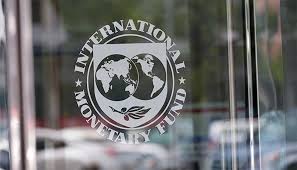The International Monetary Fund (IMF) has stated that conditionality helps countries solve balance of payments problems without resorting to measures that harm national or international prosperity.
According to the Bretton Wood Institution, when a country borrows from the IMF, the government agrees to adjust its economic policies to overcome the problems that led it to seek financial assistance.
“These policy adjustments are conditions for IMF loans and help to ensure that the country adopts strong and effective policies”, it said in a statement.
In addition, the Fund said the measures aim to safeguard IMF resources by ensuring that the country’s finances will be strong enough to repay the loan, allowing other countries to use the resources if needed in the future.
“Conditionality is included in financing and non-financing IMF programs with the aim to progress towards the agreed policy goals”, it added.
Furthermore, the Fund said member countries including Ghana that borrow from the IMF have primary responsibility for selecting, designing, and implementing policies to make their economic programme successful.
The programme is described in a letter of intent, which typically includes a memorandum of economic and financial policies for more detailed description of the policies.
Again, its objectives and policies depend on a country’s circumstances.
It explained that the overarching goal is always to restore or maintain balance of payments viability and macroeconomic stability while setting the stage for sustained, high-quality growth. For low-income countries, there is an additional objective of reducing poverty.
How does the IMF assess conditionality?
Indicative targets
The indicative targets, which are flexible numerical trackers, may be set for quantitative indicators to help monitor progress in meeting a program’s objectives.
Heightened uncertainty and limited capacity may also justify greater use of indicative targets under certain circumstances.
It added that as uncertainty is reduced, these targets may become QPCs, with appropriate modifications.
They include ceiling on the general government wage bill, ceiling on domestic arrears and ceiling on government borrowing from the central bank.
Prior actions
These are steps a country agrees to take before the IMF approves financing or completes a review. They ensure that a program will have the necessary foundation for success.
They are fiscal revenue measures, clearance of external arrears, governance reform and banking sector restructuring plan.
Quantitative performance criteria (QPCs)
These are specific, measurable conditions for IMF lending that always relate to macroeconomic variables under the control of country authorities.
Such variables include monetary and credit aggregates, international reserves, fiscal balances, and external borrowing.
Examples are ceiling on new public guarantees, ceiling on external debt and ceiling on public sector external arrears.
Structural benchmarks
These are reform measures that often cannot be quantified but are critical for achieving programme goals and used as markers to assess program implementation.
They are strengthening tax administration, improve fiscal transparency, improve anti-corruption and rule of law and reform State-Owned Enterprises (SOEs) and their governance.
The IMF Executive Board periodically conducts programme reviews to assess whether the programme is on track or needs to be adjusted in light of new developments.
If a country misses a QPC condition, the IMF Executive Board may approve a waiver if it is satisfied that the programme will still succeed. This may be because the deviation was minor or temporary or because national authorities are taking corrective actions.
Missed structural benchmarks and indicative targets do not require waivers but are assessed in the context of overall program performance.
Latest Stories
-
KOA Natural signs up for JoySports Invitational Tournament 2025
39 minutes -
NPP releases guidelines for 2028 presidential primary, nomination opens July 29
40 minutes -
Abuakwa South MP slams government over Mpox outbreak
47 minutes -
ECG Accra East Region joins JoySports Invitational Tournament slated for August 9
1 hour -
Photos from ‘Climate Talks’ event held at Don Bosco Technical Institute, Ashaiman
1 hour -
How to send money from Ghana to Nigeria without using a bank
1 hour -
DHL signs up for JoySports Invitational Tournament 2025
1 hour -
Prof. Samuel Kwasi Dartey-Baah appointed Vice Chancellor of Central University
1 hour -
Diaspora Affairs Office at presidency endorses Vanuatu Trade Commission’s AI Africa project to train millions in AI
1 hour -
‘Enough is enough’: Africa’s miners declare new era at Zambia Summit
1 hour -
Simon Asaah makes history at Elite and Masters World Aquatics Championships
1 hour -
IBM Germany’s AIOps Chief to chart AI-driven transformation at Pan African AI Summit in Accra, Ghana
1 hour -
Book Review: Building for the Future – Positioning Ghana’s Construction Industry for Sustainable Growth
2 hours -
We’ve not been called to make money from gospel music – Kofi Owusu Peprah
2 hours -
PUSAG hails game-changing legal education reform
2 hours

